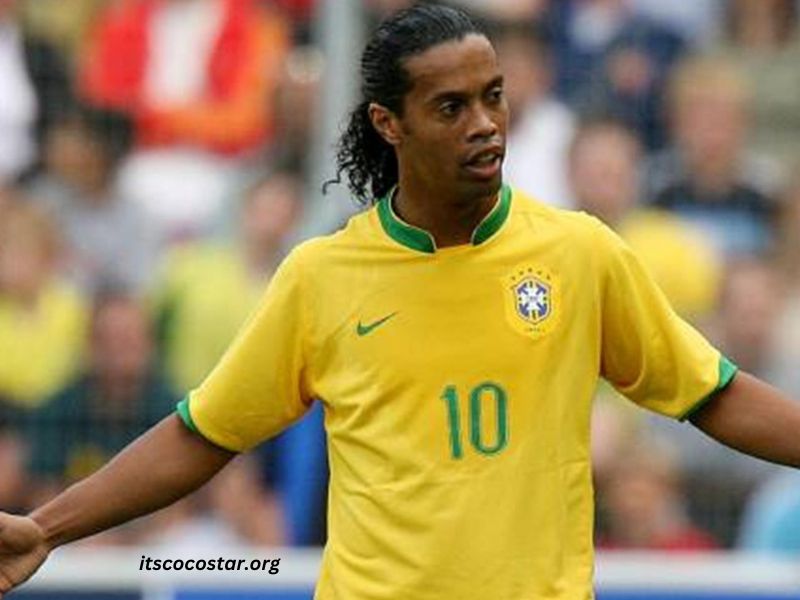Ronaldinho, the Brazilian football wizard, is one of the most iconic players in the history of the sport. Known for his dazzling skills, contagious smile, and incredible achievements, Ronaldinho is celebrated globally as a symbol of football artistry. However, when discussing his illustrious career, a common question arises: How much World Cup did Ronaldinho win? To answer this, we must delve into his World Cup history, his role in Brazil’s victories, and the tournaments where he left his mark.
Ronaldinho’s World Cup Journey
Ronaldinho, whose full name is Ronaldo de Assis Moreira, made his World Cup debut in 2002. By that time, he was already known for his flair and creativity, having excelled at clubs like Grêmio in Brazil and later Paris Saint-Germain in France. His journey in the World Cup tournaments reflects both his personal growth and Brazil’s football dominance during his prime years.
2002 FIFA World Cup: The Triumph
Ronaldinho won one FIFA World Cup with Brazil, which came in 2002. This tournament, co-hosted by South Korea and Japan, is remembered as one of the most exciting in World Cup history. Ronaldinho played a pivotal role in Brazil’s success, contributing alongside other legendary teammates like Ronaldo Nazário and Rivaldo.
Ronaldinho’s Key Moments in 2002
Ronaldinho’s most memorable contribution in the 2002 World Cup came during the quarterfinals against England. The match saw him display his incredible skill and vision, ultimately defining his legacy in the tournament.
- Assist to Rivaldo: Ronaldinho set up Rivaldo’s goal with a brilliant run and perfectly timed pass, equalizing the game after England’s Michael Owen had opened the scoring.
- Iconic Free Kick: In one of the most talked-about moments in World Cup history, Ronaldinho scored a spectacular 40-yard free kick that looped over England’s goalkeeper, David Seaman. This goal sealed Brazil’s 2-1 victory and their place in the semifinals.
Although Ronaldinho was controversially sent off later in the same match, his contributions were instrumental in Brazil’s journey to the title.
Brazil’s Path to Glory
- Group Stage: Brazil dominated their group, defeating Turkey, China, and Costa Rica.
- Knockout Rounds: The team overcame Belgium, England, Turkey, and Germany in the final.
In the final, Brazil secured a 2-0 victory against Germany, thanks to Ronaldo’s two goals. While Ronaldinho did not score in the final, his performances throughout the tournament were critical to Brazil’s fifth World Cup win.
2006 FIFA World Cup: The Disappointment
Four years later, Ronaldinho entered the 2006 World Cup in Germany as one of the best players in the world, having won the FIFA World Player of the Year award in 2004 and 2005. Expectations were sky-high for both him and the Brazilian squad, dubbed the “Magic Quartet,” which included Ronaldo, Adriano, Kaka, and Ronaldinho himself.
Brazil’s Journey in 2006
Brazil performed well in the group stages, securing victories against Croatia, Australia, and Japan. However, the knockout stages proved to be more challenging.
In the quarterfinals, Brazil faced a well-organized French team led by Zinedine Zidane. Despite Ronaldinho’s efforts, Brazil struggled to break down France’s defense and ultimately lost 1-0. The loss marked the end of Ronaldinho’s World Cup dreams, as he never returned to the tournament stage after 2006.
Ronaldinho’s Legacy in the World Cup
Ronaldinho’s single World Cup win in 2002 remains a significant part of his legacy. While he only secured one trophy, his performances in that tournament, especially against England, are etched in football history.
Why Ronaldinho’s 2002 Win Matters
- Youthful Energy: Ronaldinho was just 22 years old during the 2002 World Cup, making his achievements even more impressive.
- Team Player: He complemented Brazil’s attacking trio, contributing through assists, goals, and creativity.
- Iconic Moments: His free kick against England is still regarded as one of the greatest World Cup goals.
Comparing Ronaldinho to Other Brazilian Legends
When considering how much World Cup did Ronaldinho win, it’s essential to compare him to other Brazilian legends.
Pelé (Three World Cups)
Pelé remains the only player to have won three World Cups (1958, 1962, and 1970). His unmatched success is a benchmark for Brazilian players.
Ronaldo Nazário (Two World Cups)
Ronaldo Nazário, Ronaldinho’s teammate in 2002, won two World Cups (1994 and 2002). While he didn’t play in the 1994 tournament, his contributions in 2002 were monumental.
Cafu (Two World Cups)
Cafu, Brazil’s captain in 2002, also won two World Cups (1994 and 2002). His leadership and consistency made him a cornerstone of Brazil’s defense.
Compared to these legends, Ronaldinho’s single World Cup win may seem modest. However, his unique style and memorable moments ensure his place among Brazil’s greats.
Ronaldinho’s Absence from Future World Cups
After 2006, Ronaldinho’s career began to decline. He struggled to maintain the same level of performance that had made him a global superstar. By the time the 2010 World Cup in South Africa arrived, Ronaldinho was not selected for the Brazilian squad, signaling the end of his World Cup journey.
How Ronaldinho’s World Cup Win Shaped His Career
Winning the World Cup in 2002 was a defining moment for Ronaldinho. It elevated his status from a promising talent to a global icon. His performances in the tournament caught the attention of European clubs, leading to his transfer to FC Barcelona in 2003.
Ronaldinho’s Achievements Post-World Cup
- Ballon d’Or (2005): Recognized as the best player in the world.
- UEFA Champions League (2006): Helped Barcelona secure the prestigious title.
- Global Ambassador: Ronaldinho became a symbol of joy and creativity in football, inspiring millions worldwide.
Conclusion
To summarize, Ronaldinho won one World Cup, which came in 2002. While he didn’t win multiple titles like Pelé or Ronaldo Nazário, his contributions to Brazil’s 2002 victory remain unforgettable. Ronaldinho’s unique flair, combined with his passion for the game, solidified his place in football history.
Though his World Cup achievements may be fewer in number, the legacy of his magical moments ensures that he will forever be celebrated as one of the greatest players to grace the tournament. For fans and aspiring footballers, Ronaldinho’s journey is a testament to the beauty of the sport and the power of talent combined with hard work.
Whether you’re a long-time admirer or a new fan discovering his brilliance, one thing is certain: Ronaldinho’s 2002 World Cup win is a story worth cherishing.






